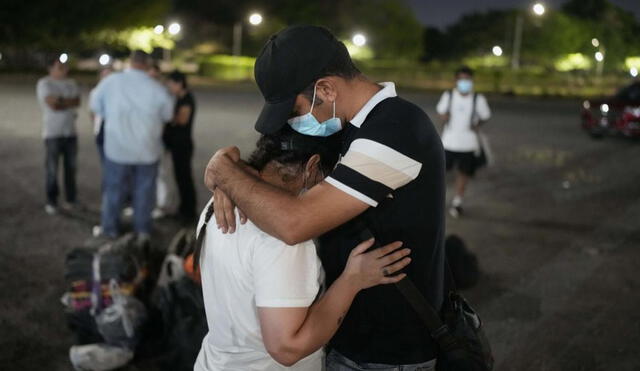Panama releases dozens of U.S. deportees amid human rights criticism
Migrants, mostly from Asian countries, arrived in Panama City on Saturday, March 8, after spending weeks in a Panamanian immigration camp following their deportation from the U.S. and being released on the condition that they leave the country within 30 days.

Following intensified discussions on immigration and human rights, Panama has released dozens of migrants who were detained in a remote jungle camp after being deported from the United States. These individuals, originating from countries such as Afghanistan, China, Russia, Pakistan, Iran, and Nepal, now face a precarious future with limited options.
This decision comes amid mounting criticism from human rights organizations over the treatment of deportees and the broader implications for migration policies in America. The migrants were part of a deal struck between the Donald Trump administration and Panama and Costa Rica as the U.S. government attempts to speed up deportations.
Dozens of U.S. deportees in limbo: The struggle for asylum
Among the released is Hayatullah Omagh, a 29-year-old Afghan who fled his homeland in 2022 following the Taliban's resurgence. Omagh's journey led him to seek asylum in the U.S., but he was deported and subsequently detained in Panama. Expressing his plight, Omagh stated, “We are refugees. We do not have money. We cannot pay for a hotel in Panama City, we do not have relatives.” He fears returning to Afghanistan, where the Taliban's control poses a lethal threat to individuals like him.
Similarly, Nikita Gaponov, a 27-year-old Russian fleeing persecution due to his LGBTQ+ identity, found himself in a comparable predicament. Detained at the U.S. border without the opportunity to claim asylum, Gaponov now faces uncertainty in Panama. He remarked, “Once I get off the bus, I'll be sleeping on the ground tonight.”
Human rights criticism over migrant detention conditions
The detention conditions in Panama have drawn sharp criticism from human rights organizations. Reports indicate that migrants were held in poor conditions, deprived of their phones, and denied access to legal counsel. Instances of hunger strikes and unrest among detainees have been documented, highlighting the severity of their situation.
Legal advocates have raised alarms about the potential violations of international refugee laws. The agreement between the U.S. and Panama to deport migrants to third countries has been labeled as a tactic to sidestep asylum obligations. Critics argue that this approach effectively exports the deportation process, placing vulnerable individuals in precarious situations without adequate legal protections.
Uncertainty and hope for U.S. deportees
With Panama granting temporary humanitarian passes valid for 30 days, extendable by an additional 60 days, the released migrants are now tasked with determining their next steps. However, many face significant drawbacks:
- Financial constraints: Lacking resources to afford accommodations or basic necessities.
- Legal status: Uncertainty about their rights and potential pathways to asylum or resettlement.
- Safety concerns: Fears of returning to their home countries where they may face persecution or harm.
Human rights groups and legal advocates are mobilizing to provide support, but the road ahead remains fraught with challenges.












